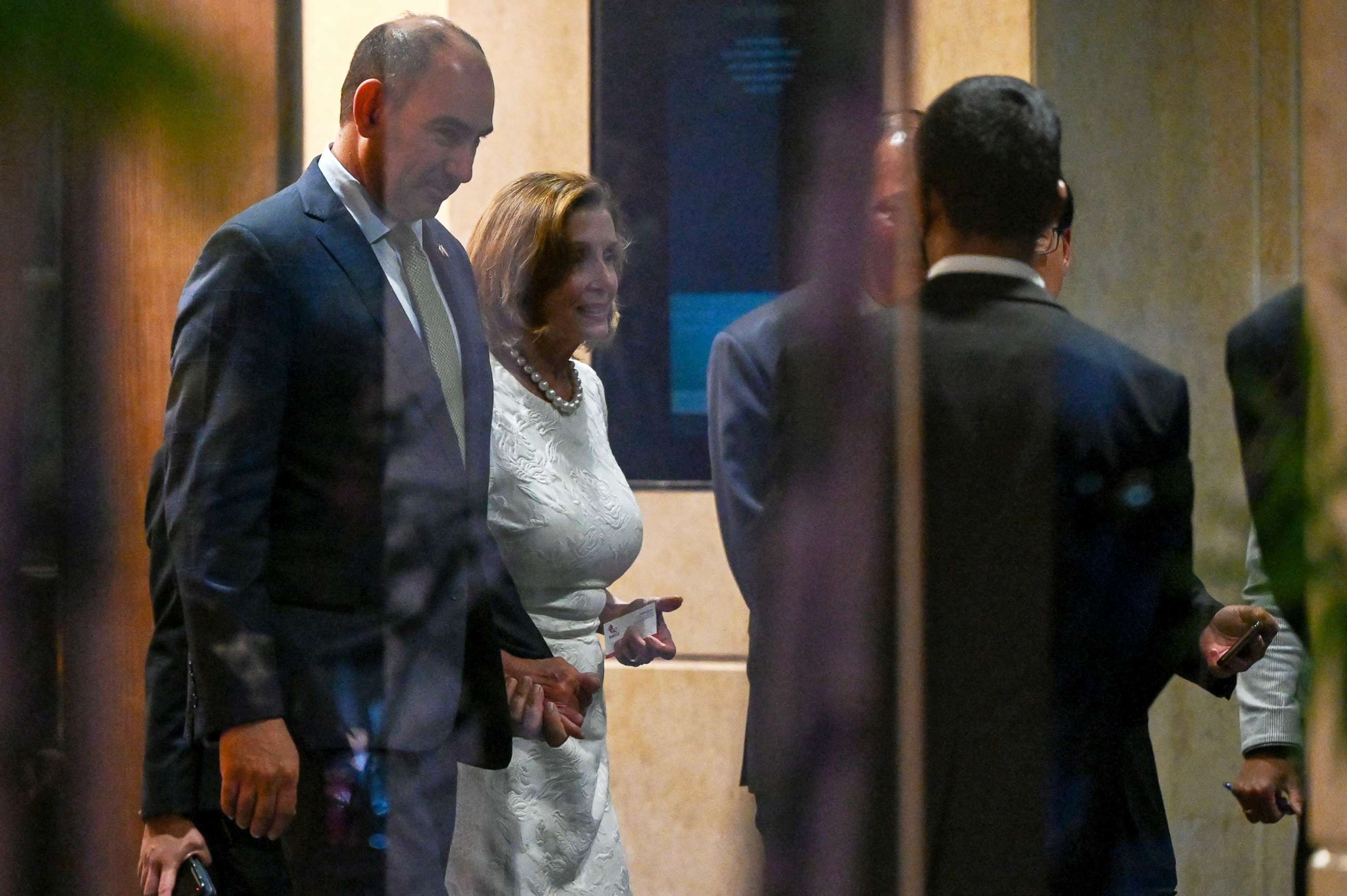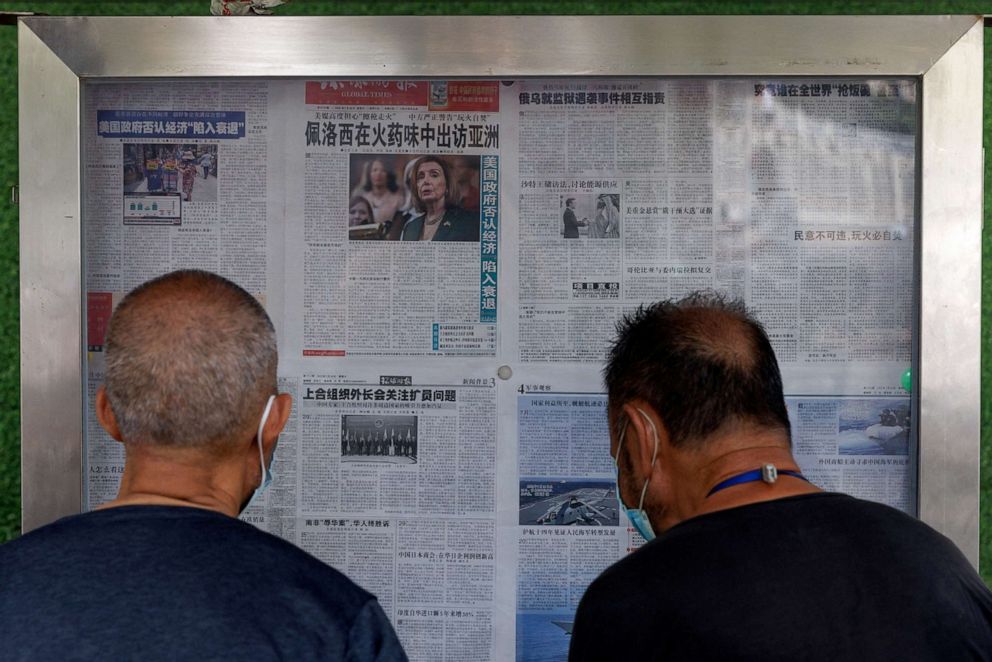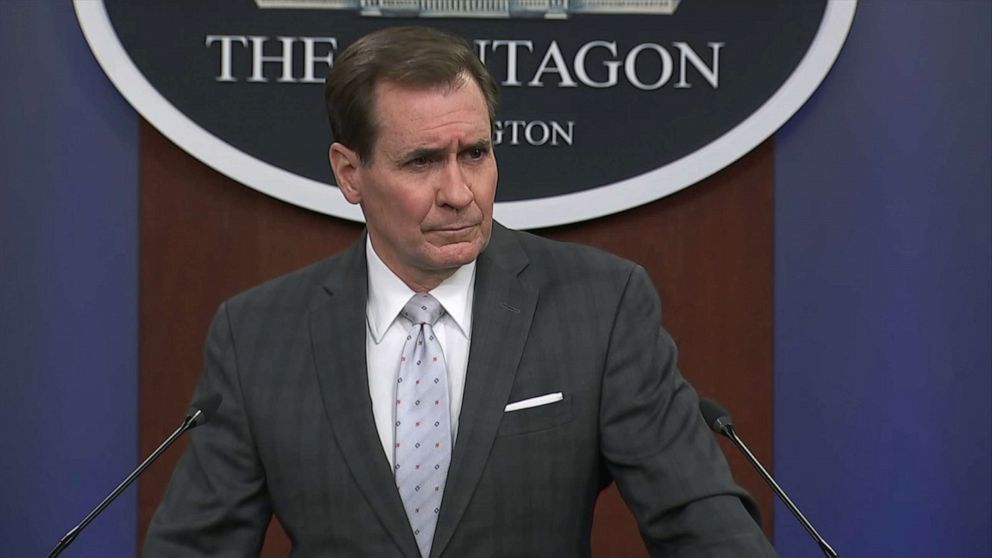China could take 'military provocations' tied to a Pelosi visit to Taiwan, White House says
"We will not take the bait," a White House spokesman said.
The White House said Monday that China was seemingly laying the groundwork to carry out "military provocations" in response to House Speaker Nancy Pelosi's potential visit to Taiwan.
"China appears to be positioning itself to potentially take further steps in the coming days and perhaps over longer time horizons," White House spokesman John Kirby told reporters.
He cast the escalating tensions as fueled by China, which the U.S. was "not threatening," and he insisted that a potential visit from Pelosi would have precedent and would not "change the status quo" regarding China and Taiwan.
Under the "One China" policy, the U.S. recognizes Beijing as China's government and does not support an independent Taiwan, considering the matter "unsettled," though the U.S. is militarily supportive of the self-governing island and maintains informal ties.
"We, and countries around the world, believe escalation serves no one," Kirby said. "Beijing's actions could have unintended consequences that only serve to increase tensions."
"The world should reject any [Chinese] effort to use it to do so," Kirby said, referring to a possible Pelosi appearance in Taiwan. "We will not take the bait or engage in saber rattling. At the same time, we will not be intimated. We will keep operating in the seas and skies of the western pacific, as we have for decades."
Pelosi landed in Singapore early Monday local time for a tour of Asia that her office said will also bring her to Malaysia, South Korea and Japan. Neither her office nor the White House has confirmed her reported plans to visit Taiwan.
Kirby said that the "potential steps" China may take in response to Pelosi's possible visit to the island -- which China claims as part of its territory -- "could include military provocations, such as firing missiles in the Taiwan Strait or around Taiwan, operations that break historical norms such as a large-scale air entry into Taiwan's air defense identification zone" or "air or naval activities that crossed the median line; military exercises that could be highly publicized."
He noted that the last time Beijing fired missiles into the Taiwan Strait was in 1995 and 1996.


"Some of these actions would continue concerning trend lines that we've seen in recent years," Kirby said, adding that "some could be of a different scope and scale."
There could also be measures taken "in the diplomatic and economic space, ... like Beijing's public assertions last month that the Taiwan Strait is not an international waterway."
Asked what planning was "being done in advance to ensure there won't be any dangerous fallout if she does indeed go to Taiwan," Kirby said he could "assure" that Pelosi would be able to "travel safely and securely."
"We take our security commitments in the region very, very seriously," Kirby later said on Fox News. "And we have ample capabilities in the region should we need them."
At Monday's briefing, Kirby said President Joe Biden had not spoken directly with Pelosi about her trip to Asia. He also took issue with a reporter who asked why Pelosi was "being urged not to go."
"I don't know that she was urged not to go," Kirby said. "Who urged her not to go?"

"The president did not speak directly with the speaker about this trip," he said.
The reporter clarified she had been asking about Biden saying previously that the military did not think it was a good idea for Pelosi to go to Taiwan.
"The speaker makes her own decisions," Kirby said. "And what we did was provide her context, analysis, facts [and] information so that she could make the best decision possible for every stop, for every overseas travel."
"We have been clear from the very beginning that she will make her own decisions and that Congress is an independent branch of government," he said.




